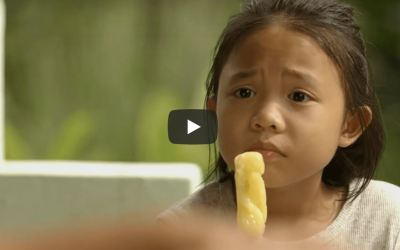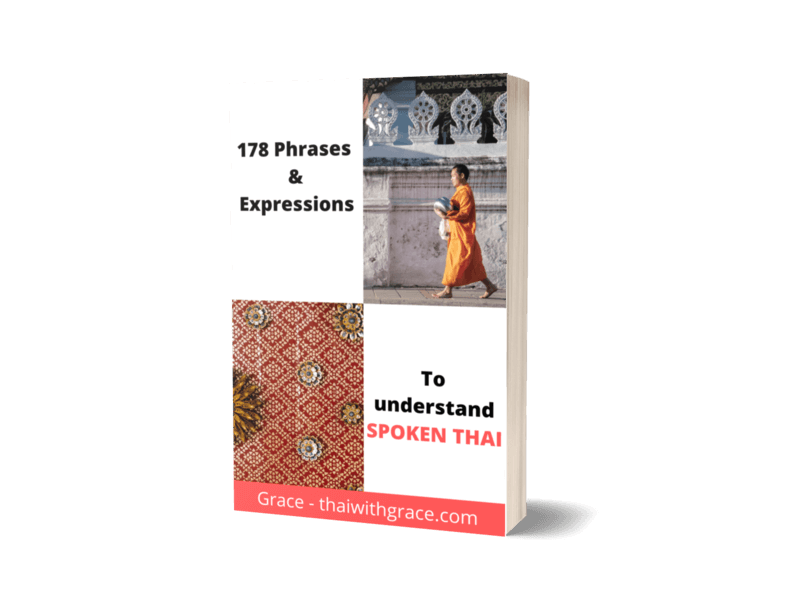Blog
What you should know about February in Thai
February in Thai is กุมภาพันธ์ pronounced gum-paa pan. Since February has either 28 or 29 days, it is the only month that does not end with either ยน (yon) or คม (kom) and instead ends in พันธ์ pan. The abbreviated version...
What you should know about January in Thai
January in Thai is มกราคม pronounced mók-gà-raa kom. Like all months (เดือน deuan) in Thai that have 31 days, it ends with คม (kom). The abbreviated version of มกราคม is ม.ค. The beginning of มกราคม is มกร (má-gon) meaning dragon coming from the...
Learn many words with โรง
The word โรง (rohng) means big hall or building in Thai. However, usually, you will see it as a part of a word. For example, โรงเรียน (rohng rian) meaning school. เรียน by itself means to study. Let's learn some more words that contain โรง พยาบาล pá-yaa-baan: Nurse *...
Why Thai isn’t as hard as you think
Starting to learn Thai might seem like a very daunting task. You have to learn 44 new consonants, you have to learn different vowels, you have to learn about tones. However, you should not learn that scare you! In this post, I will explain why Thai isn’t as hard...
Thai Classifiers – 20 classifiers you should know
Learning Thai Classifiers (ลักษณะนาม: lák-sà-nà-naam) is a very important part of learning Thai Grammar because they are used every day and used so much more often than in English. I will explain in a bit. Technically, there are many Thai classifiers you will have to...
Difference between ยาว and นาน
A common mistake I see a lot of Thai learners make is not knowing the difference between ยาว and นาน (yaao and naan) and when to use each. ยาว and นาน both mean long but each word is used in different contexts. นาน naan นาน (naan) means long when talking about time....
The difference between เก่า and แก่
When you search how to say 'old' in Thai, you might come across these two words เก่า and แก่ (gào and gàe). Do you know the difference between them and when to use each? แก่ gàe แก่ (gàe) is used when describing a person or an animal. If a person or animal is old you...
Transcript for a popular Thai video called Pineapple
Hi everyone! Do you know this very popular short Thai video called pineapple? The full title of the youtube video is “สับปะรด” (Pineapple) หนังสั้นสร้างแรงบันดาลใจ โครงการสานรัก - meaning: Pineapple - Short movie that creates inspiration - A sanrak Project. It has...
Krap and Ka in Thai
Anyone who has been to Thailand has most definitely heard Thai people use Krap and Ka (ครับ and คะ or ค่ะ) since Thais say them all the time. Men say ครับ (kráp) and women say คะ or ค่ะ (ká or kâ). There are 2 versions of ka which I will explain shortly. ❗️Please...
How to use the word เนอะ
เนอะ (núh) is a word or particle that Thai people use when giving an opinion and they are expecting yes as an answer. It is like asking 'right?' and expecting the answer to be yes. For example - if you think the food is delicious and you are seeking confirmation from...
How to say When in Thai
A common mistake a lot of Thai learners make is thinking เมื่อ (mêua) is the way to say 'when' in all situations. However, Thais generally don't use เมื่อ in everyday conversation. เมื่อ is a more formal way of saying 'when' and you will mostly see it in newspapers or...
When to use ขวบ vs ปี
In Thai, there are 2 ways to say years when referring to someone's age. They are ขวบ (kùap) and ปี (bpee). ปี is also the word for year in general. Do you the difference between the words and know when to use ปี and when to use ขวบ (kùap)? ปี As I mentioned earlier,...













